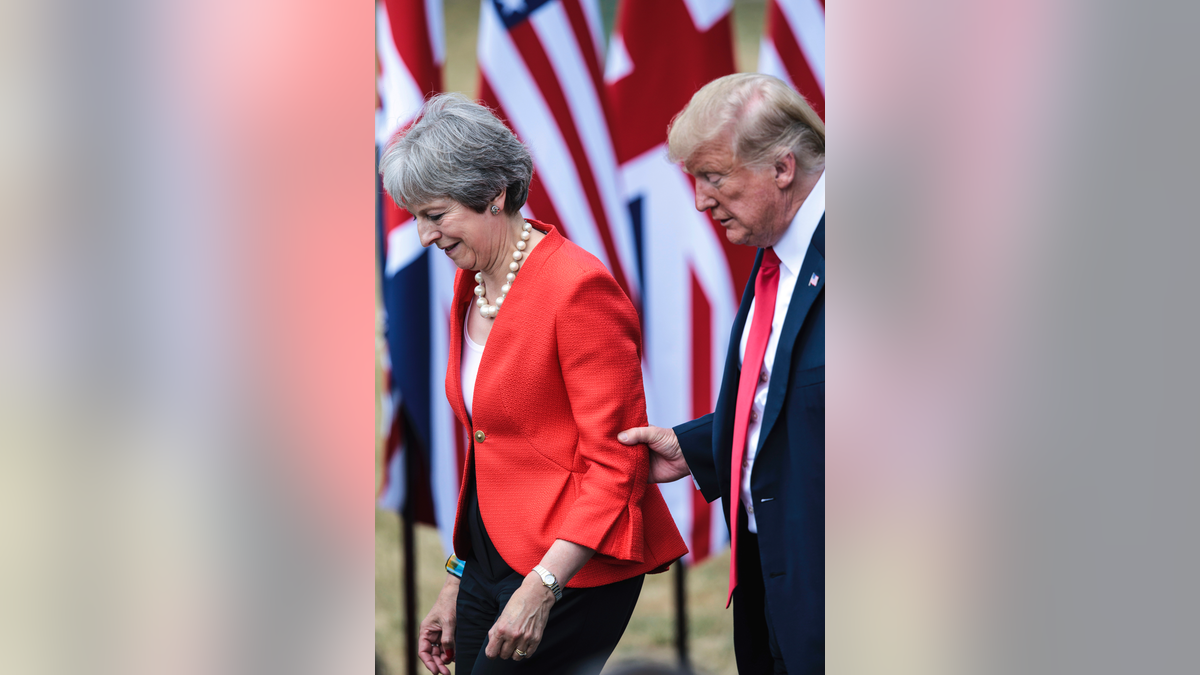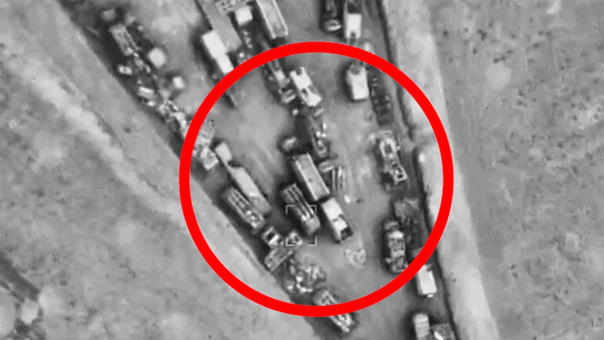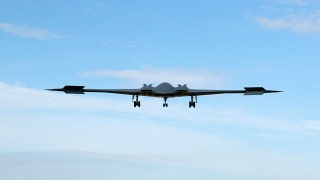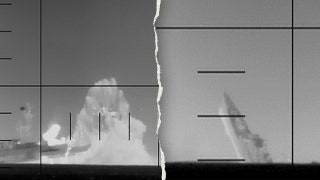
ELLESBOROUGH, England – President Donald Trump paid tribute to the legacy of Winston Churchill on Friday amid questions about whether he's putting new strains on the "special relationship" between the U.S. and the U.K. that was forged more than 70 years ago.
During a joint news conference with British Prime Minister Theresa May, Trump made note of his tour of a Churchill exhibit the night before at Blenheim Palace, the estate near Oxford where the wartime leader was born. And he marveled at the press conference setting at Chequers, the 16th century country residence used by British prime ministers since the 1920s.
"It was from right here at Chequers that Prime Minister Churchill phoned President Roosevelt after Pearl Harbor," Trump said, referencing the surprise attack by the Japanese on December 7, 1941, that plunged the U.S into World War II. "In that horrific war, American and British service members bravely shed their blood alongside one other in defense of home and in defense of freedom and together we achieved a really special, magnificent victory."
Trump has long admired Churchill, who coined the phrase the "special relationship" to describe U.S.-British relations.
But Trump's visit came against the backdrop of tensions in the trans-Atlantic alliance: Mass protests of Trump in the streets of London, his second-guessing of May's handling of Brexit in an interview with a British newspaper and a string of international summits that have often pitted the U.S. against its traditional allies.
"If Trump truly wanted to emulate Churchill, he would celebrate the peace and prosperity of Europe and seek to strengthen rather than destroy trans-Atlantic ties," said Amanda Sloat, a senior fellow at the Brookings Institution and a former State Department official in the Obama administration.
Trump made his first trip to the U.K. as president after a tense summit with NATO leaders in Brussels and only days after fresh ruptures in May's government over Britain's exit from the European Union.
In an interview with The Sun newspaper, Trump criticized May's "soft Brexit" plan and said Boris Johnson, a May rival who resigned his position as foreign minister over her Brexit plans, would make an "excellent" prime minister.
During the news conference, Trump claimed he didn't criticize May over Brexit and said he had a "lot of respect" for her. While he spoke highly of Johnson, he also heaped praise on May, calling her an "incredible woman" who is "doing a fantastic job."
Asked about the status of the "special relationship," Trump said he would give it "the highest grade of special."
Trump has praised the leadership of Churchill, a figure who has been revered by American conservatives for his tenacity during the war and role in defeating the Nazis. The president reinstalled a bust of Churchill in the Oval Office shortly after his inauguration and screened the 2017 film "Darkest Hour" at the White House last winter in a sign of his affinity for the British leader.
"The president knows how important the special relationship is firsthand and that's why the bust of Churchill is actually in the Oval Office as we speak. This is not an accident," said Woody Johnson, Trump's ambassador to the U.K. "He knows that he has an opportunity to make this special relationship even stronger."
In the weeks before Trump's inauguration, May sent Trump a copy of the text of Churchill's 1941 Christmas Eve radio address to Americans, delivered while the prime minister was staying with Roosevelt after Pearl Harbor.
Churchill spent three weeks at the White House, cementing his ties with Roosevelt and forming the basis for future relations between the U.S. and the U.K.
During a 1946 speech at Westminster College in Missouri, Churchill described the alliance between the two nations as the "special relationship" that required not only "the growing friendship and mutual understanding" but also the "continuance of the intimate relationship between our military advisers, leading to common study of potential dangers."
Former House Speaker Newt Gingrich, the author of "Trump's America," said parallels can be drawn between Churchill's years in the wilderness during the 1930s and Trump's emergence in Republican politics from outside the establishment.
"'Darkest Hour' would appeal to Trump because it combines courageous self-direction, standing up to the old order, with an almost mystic sense of speaking for the people," Gingrich said in an email. "Both represent national patriotism."
___
Thomas reported from Washington.








































